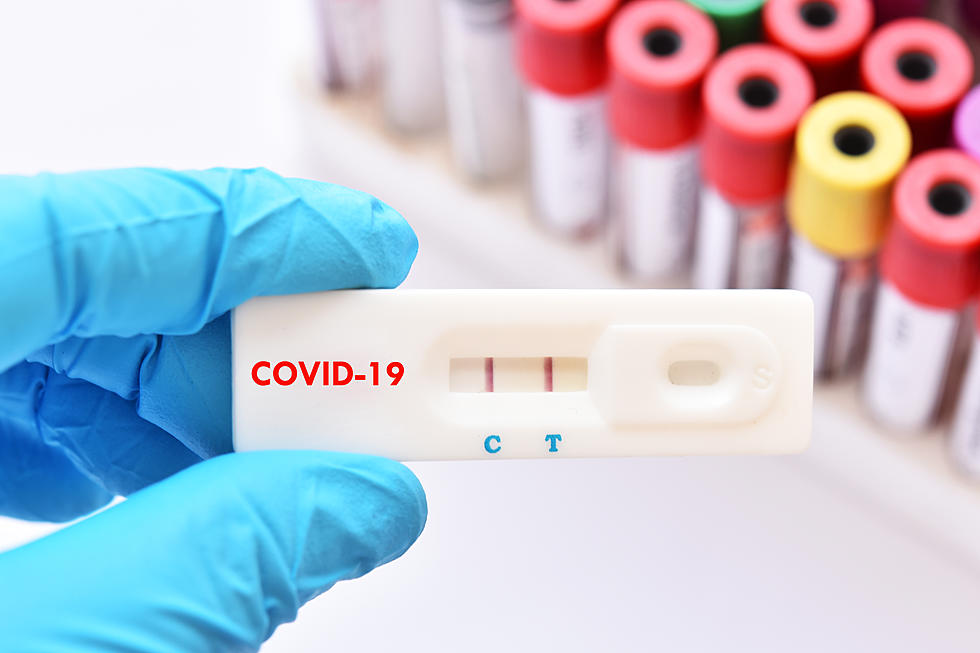
How to prepare and battle the summer-fall allergy season at the Jersey Shore
One of the things we've learned since the pandemic began is how to better take care of our sinuses and allergies.
There's been some confusion, which is a given, about understanding the difference between allergies/sinusitis and Covid-19.
And finally, on top of all that, we've hit the point of the year where summer is starting wind down and eventually transition into fall which means leaves falling, weather getting cool and allergies flaring up all over again.
To prepare now before symptoms flare up and to know how to treat them if and when they do, two Allergists with Hackensack Meridian Health, Dr. Bruce Decotiis and Dr. Chirag Patel, both who work in the same offices on Route 88 in Brick and in Wall., have some ways to make sure your breathing is more clear as allergies try to congest the sinuses.
Listen to Vin Ebenau mornings on Townsquare Media Jersey Shore Radio Stations, email him news tips here, and download our free app.
The first allergen to come after you is ragweed, which is the season we're in right now explains Dr. Decotiis, which lasts thru "almost the first frost" and in addition to ragweed, there's a lot of other kinds of weeds that try and rattle through your sinuses at this time of year.
When you factor in the weather and temperature changes, it creates some issues for people who suffer from allergies.
"We also have problems with outdoor mold spores and those kind of things," Decotiis said.
When it gets too chilly to keep the windows open and screens on doors (unless you like it cool/cold), new challenges to the sinuses present themselves in your homes.
"As people shut their houses up and put their heat on, etc., then we start also having problems with dust mites and indoor mold," Decotiis said.
If you begin experiencing symptoms, perhaps even for the first time, or want to prevent an onset of symptoms, you should take something over the counter to start with depending on your symptoms.
"Nasal congestion is primarily addressed by internal corticolsteroids such as flo-nase and things like that, Zyrtec, Allegra or any other antihistamine like Claritan do actually help with some of these symptoms especially if you have a history of allergies to weeds and you expect to have symptoms moving forward then I would start a week before the pollen starts," Dr. Patel said.
Many people living at home conduct a bi-annual spring cleaning/fall cleaning to take everything apart, dust, polish, clean -- you name it.
It all has to be cleaned at some point, no doubt there, but if you know you usually suffer from things flying around and you end up sneezing or getting congested, etc., than there's a few things you can try and do to mitigate that allergen risk.
"You can preemptively take some antihistamines to decrease the symptoms, flonase is a great medicine for nasal congestion or any of the internasal steroids that are on the market and obviously wearing a mask, especially with the dust mites, will definitely be helpful," Patel said.
If you're new to the allergy sufferers club, then you can certainly consult an allergist and perhaps with/through them receive an allergy test to determine what exactly you're allergic to and how bad but only in certain cases.
"The great majority of patients who have seasonal allergies never come to the allergist and don't really need to honestly. If you have well circumscribed symptoms meaning there's only a certain time of the year that you get symptoms and it's repetitive, etc., and you respond to over the counter medications....as long as patients know what they're doing, the great majority of patients with seasonal allergies can just treat themselves -- and I'm not trying to discourage patients from seeing the allergist, sometimes it's just not necessary," Decotiis said.
When in doubt or if you continue to have symptoms, consult an allergist to find the best options for treatment.
"If you're having recurring sinus infections, those are some worrisome symptoms, because they can sometimes also lead to loss of smell and loss of taste and their types of things and it can also signal that there may be nasal polyps involved as well so in those cases, it would behoove them (you) to seek care from an allergist of their primary care doctor," Patel said.
Outside of antihistamines and nasal sprays, there are some things you can do to clear or rinse out the sinuses.
"Nasal rinses are great, as long as you can tolerate them because it gives everybody a very weird feeling because you're putting water into one nostril and it's coming out the other nostril," Patel said. "The only care I would take with that is make sure you don't use tap water or well water, you definitely want to use either boiled water or sterile water and then use the mixing packs."
Even with the change in season coming upon us, in terms of summer to fall and ragweed season raining down and all over, there is still some confusion amidst the pandemic and with the Delta variant of differentiating between Allergy symptoms and Coronavirus symptoms.
It's not always easy to figure things out but there's a few key questions you'll have to answer yourself to try and find out.
"If a patient has a clear cut history of a seasonal problem and it's the season, it's more likely that it's going to be an allergy rather than an infection (such as) Covid or even the Flu," Decotiis said. "However, symptoms also make a big difference. One of the things that can help you to differentiate is that Covid doesn't cause itching, so if your eyes are itching and your nose is itching and especially if you're sneezing a lot the chances are that's allergies. We all know that that doesn't necessarily rule out that you have Covid, a lot of people have Covid and never even know it."
Outside the itching and sneezing during the ragweed and summer/fall allergy season, there are other symptoms to look out for like if you lose your sense of smell.
"Unless you have an underlying sinus infection, that's more related to Covid. If you have aches and pains for instance, that's more related to Covid, allergies don't cause that," Decotiis said. "If you're extremely fatigued, that's generality Covid although some seasonal allergy patients complain of fatigue and lethargy as well. Bad respiratory symptoms don't happen with allergies unless you have asthma, if you have asthma and allergies, than obviously that's going to happen as well. Chest pain doesn't generally happen with allergies. If you have a fever and you have symptoms and you're eyes aren't itching and you're nose isn't itching and sneezing, it's more Covid."
You can hear more about how to battle the Summer-Fall allergies with Dr. Decotiis and Dr. Patel below.
First Responders Appreciation
More From 94.3 The Point










